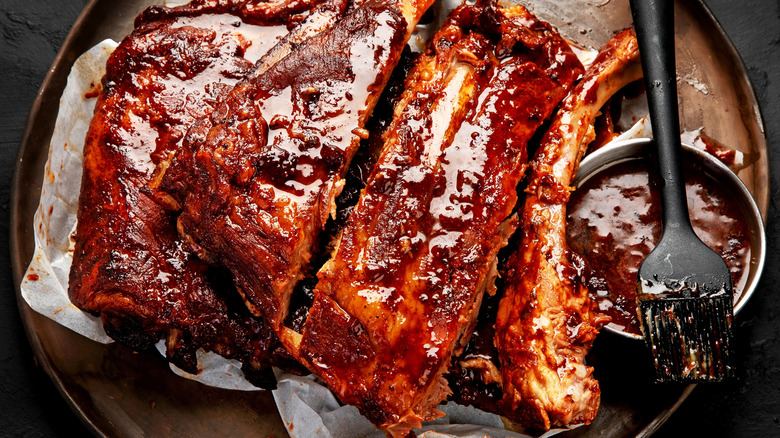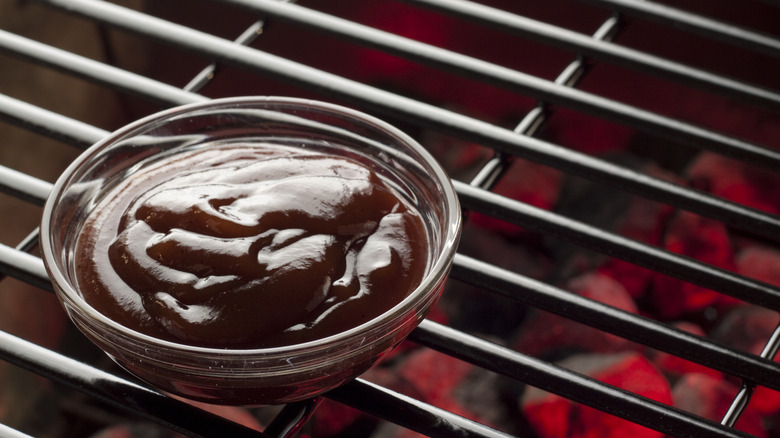The Original Version Of Barbecue Sauce Was Way Different Than What We Use Now
We may receive a commission on purchases made from links.
When people think of American barbecue, they often think of Kansas City BBQ. In the same way, the city's barbecue sauce has become the country's standard. But the U.S. is too big and diverse of a country to fit neatly into any category, especially when it comes to food. There's no denying that Kansas City's thick, sweet, and smokey sauce is an American staple, but we can't leave behind Alabama white BBQ sauce or the tangy sauce of the Carolinas. In fact, we could sit here and debate which sauce is best for ages, and never come to a conclusion. But one thing is for certain: barbecue sauce has come a long way from its origins.
Meathead Goldwyn, author of "Meathead: The Science of Great Barbecue and Grilling," writes in his blog that, although ketchup and vinegar are now the main ingredients for most barbecue sauces, butter used to be the star of the show. The origins of the sauce are complex, coming together as Europeans colonized the Americas and found new ingredients as well as techniques for drying and cooking meat. Overtime, recipes started to form from fusions. The French brought in their love of butter, the Germans their use of mustard, Spaniards probably contributed vinegar. West Africans forcibly brought to the continent added the use of cayenne and sage, and Indigenous Americans had native ingredients like tomato and chili peppers. Everything came together to make sauces meant to bring flavor and moisture to different kinds of meat.
The evolution of the barbecue sauce
According to Goldwyn, the first reference to sauce recipes for barbecued meat comes from the 1867 "Mrs. Hill's New Cook Book" by a Mrs. A.P. Hill from Georgia. These sauces were mostly butter and vinegar with spices, which he likens to the ones that are still found in the Carolinas. Even back then, there were also some catsup (the precursor of ketchup) recipes, but they usually still contained butter.
Sometime during the early 20th century, butter began taking a back seat. In 1917, Adam Scott started selling the oldest commercial barbecue sauce that still exists, Scott's Family Barbecue Sauce. His recipe had more vinegar than anything else, and didn't feature butter. Recipes from the Great Depression and World War II also show a decline in the use of butter, maybe because the ingredient was harder to come by at the time.
Barbecue sauce continued to evolve. Variety of flavor began to diminish as commercial sauces became more widely available, and unique family recipes for homemade sauces slowly vanished. Butter all but disappeared, and regions started to develop their distinctive versions of the sauce we now know and love. Of course, it's still difficult to define what barbecue sauce is or should be. Even within regions, there are variations, but most sauces are sweeter than they would have been in the 19th century. Whatever your preference is, any aspiring barbecue master is aware that knowing your sauces is the key to mastering grilling.

